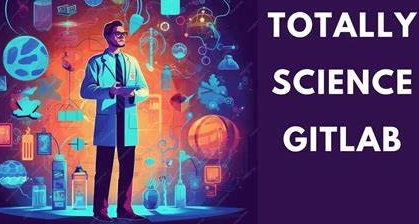GitLab has emerged as a powerful platform for software development and version control, but what makes it stand out in the world of technology? In this article, we’ll delve into how Totally Science leverages GitLab, exploring its features, benefits, and how it fits into the broader software development landscape.
What is GitLab?
GitLab is an open-source DevOps platform that provides a comprehensive suite of tools for software development. It integrates version control with CI/CD (Continuous Integration/Continuous Deployment), project management, and more. GitLab allows teams to collaborate efficiently throughout the entire software development lifecycle.
Totally Science: Overview
Totally Science is an online platform that focuses on the science of technology and software development. By utilizing GitLab, Totally Science streamlines its workflows, enhances collaboration, and optimizes project management. This integration plays a critical role in managing scientific projects, data analysis, and software development within the field of science.
Key Features of GitLab
Version Control:
GitLab offers robust version control with Git, allowing teams to track changes, collaborate on code, and maintain a history of modifications.
CI/CD Pipelines:
GitLab’s built-in CI/CD tools automate the testing and deployment processes, reducing manual errors and speeding up development cycles.
Project Management:
GitLab provides features for issue tracking, milestone management, and project boards to help teams stay organized and on track.
Security and Compliance:
GitLab includes features for managing security vulnerabilities and ensuring compliance with industry standards.
Collaboration Tools:
With merge requests, code reviews, and real-time chat, GitLab fosters effective communication and collaboration among team members.
How Totally Science Uses GitLab
Efficient Project Management
Totally Science uses GitLab’s project management features to organize research and development tasks. By setting up issues and milestones, teams can track progress, assign tasks, and meet deadlines more effectively.
Enhanced Collaboration
Through GitLab’s merge requests and code review features, Totally Science ensures that every piece of code is thoroughly reviewed before integration. This collaborative approach improves code quality and facilitates knowledge sharing among team members.
Streamlined CI/CD
Automating the build, test, and deployment processes with GitLab’s CI/CD pipelines helps Totally Science maintain high-quality standards while accelerating the release of new features and updates. This efficiency is crucial for staying ahead in the competitive field of scientific research.
Security and Compliance
Totally Science relies on GitLab’s security tools to identify and address vulnerabilities in their codebase. By adhering to compliance standards, they ensure that their software meets the necessary regulations and industry best practices.
Benefits of Using GitLab for Scientific Projects
Increased Efficiency
GitLab’s integration of various tools into a single platform eliminates the need for multiple disparate systems. This integration leads to faster development cycles and reduced overhead.
Better Collaboration
The collaborative features of GitLab enable scientists to work together more effectively, share insights, and contribute to projects from different locations. This collective effort enhances the overall quality of research and development.
Improved Code Quality
With GitLab’s code review and automated testing capabilities, Totally Science ensures that only high-quality code is deployed. This focus on quality helps prevent issues and improves the reliability of their scientific software.
Scalable Solutions
GitLab scales with the needs of Totally Science, accommodating growing projects and expanding teams. This scalability ensures that the platform continues to meet their requirements as they evolve.
Conclusion
GitLab serves as a vital tool for Totally Science, streamlining project management, enhancing collaboration, and ensuring high-quality software development. By leveraging GitLab’s features, Totally Science can focus on its core mission of advancing scientific knowledge while benefiting from an efficient and integrated development environment.
FAQs
What is GitLab?
GitLab is an open-source DevOps platform that provides tools for version control, CI/CD, project management, and more. It helps teams manage the entire software development lifecycle.
How does Totally Science use GitLab?
Totally Science uses GitLab to manage scientific projects, collaborate on code, automate testing and deployment, and ensure security and compliance.
What are the key features of GitLab?
Key features of GitLab include version control, CI/CD pipelines, project management tools, security and compliance features, and collaboration tools.
How does GitLab improve collaboration?
GitLab enhances collaboration through merge requests, code reviews, and real-time chat, allowing team members to work together more effectively and share insights.
What benefits does GitLab offer for scientific projects?
GitLab increases efficiency, improves code quality, enhances collaboration, and provides scalable solutions for managing scientific projects and research.

